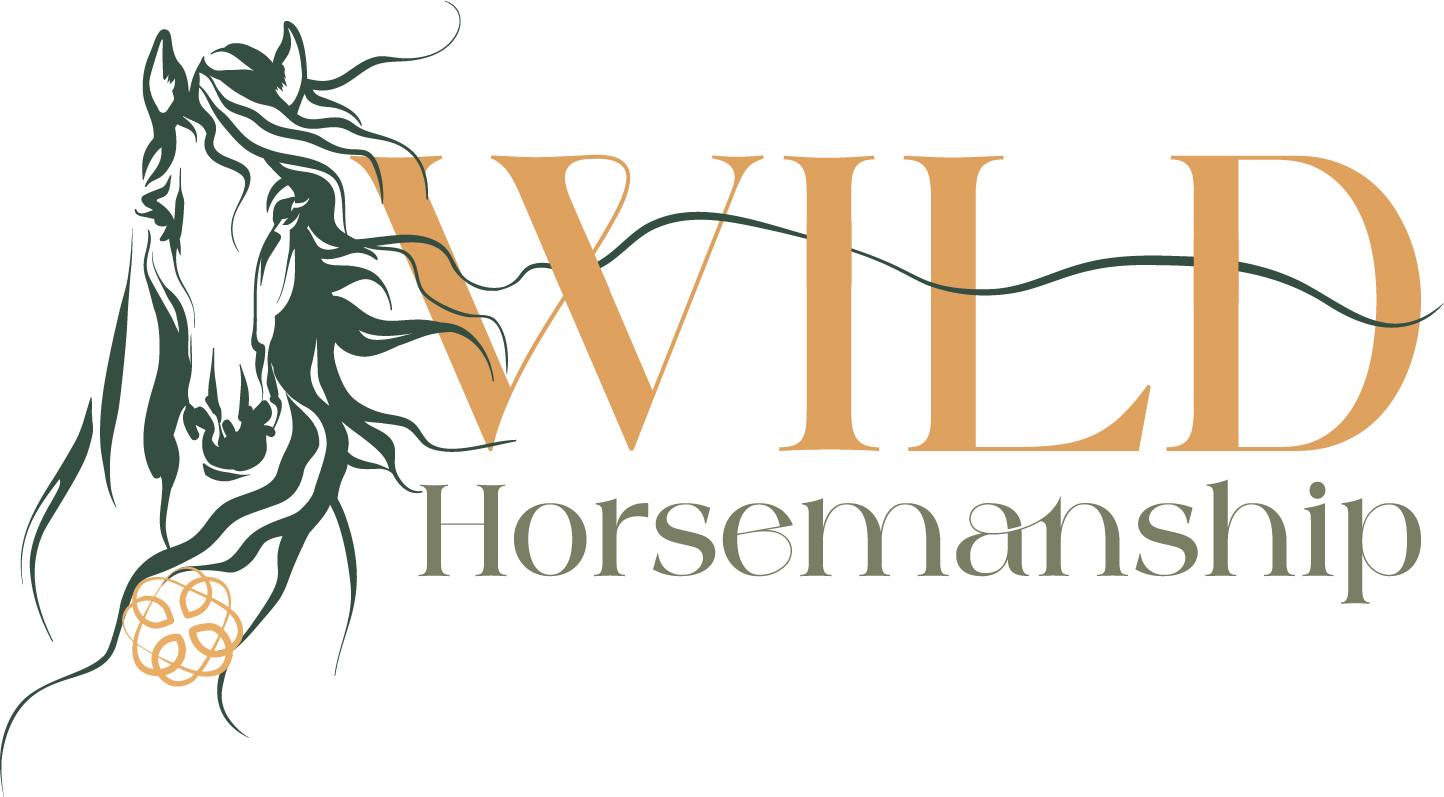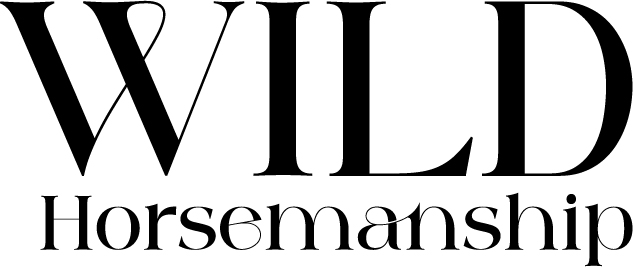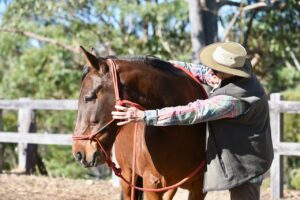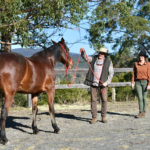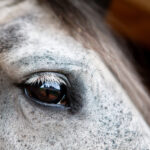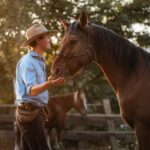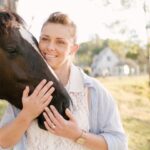“Looking back at my childhood, my fondest memories all have one thing in common: the horse!”
If I wasn’t daydreaming about them, I was sketching them, or reading every horsey book or magazine I could get my hands on.
In my spare time, I devised schemes, all with the one goal of how to get my own horse, one day, soon. I didn’t grow up in a “horsey” family so my connection to horses cannot be explained by early exposure; maybe it was ancient DNA or horse magic? I can’t say for sure, but this love – from the earliest age – profoundly changed my life.
I spent my adolescent and young adult years in pony club, competed in “stressage”, and did a lot of breed-specific showing and training. I also started what I call my lifelong research project: the study of all things equine.
It is a continuing project with many chapters and no end. I am only one of many people, past and present, who have attempted this task, such as Tom Dorrance and Mark Rashid, and I gratefully acknowledge their contribution to my learning.
I have been told I have a growth mindset. I feel this differentiates my approach and has enabled me to try new approaches and incorporate new research, such as equine neuroscience, and to see every horse as an opportunity to learn.
Over the past 15 years, I have had the privilege of working with the brumbies from Guy Fawkes National Park. These remarkable horses have been my greatest teachers. Through them, I have come to understand the essence of the authentic horse. Venturing into the Australian bush with my pack-saddled brumbies is where I find solace, grounding, and a refuge from the pressures of day-to-day life.’
My business name, Wild Horsemanship, is a deliberate juxtaposition. I hope it represents a blend of the free spirit of horses, with the need for structured training in the modern world, and to honour the human desire for connection with nature and animals. By acknowledging the bond often formed between humans and horses, as well as horses’ innate spirit, I hope to pave the way for a reawakening of ancient connections and harmonious coexistence between species. My goal is to foster genuine connections between humans and horses, rooted in mutual respect, understanding, and nurturing solid partnerships.
Wild Horsemanship offers a distinctive perspective on the human-horse relationship. I delve into how this partnership can enrich our understanding of ourselves, improve our horsemanship skills, and strengthen connections with our horses. I believe that a deep appreciation of the horse and human connection is one of the last frontiers in horsemanship – this is the work that excites me most. ‘
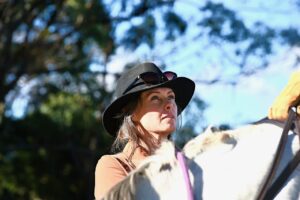
Kate Young has a Bachelor’s Degree in Education and is currently Assistant Principal at a High School for children with Social, Emotional and Behavioural challenges.
Kate’s Qualifications:
Bachelors Degree in Secondary Teaching
Diploma Horse Industry Management
Diploma Equine Ethology (Behavioural Science)
Certified Bit Bank Australia Coach
Certified Equine Assisted Education Practioner
Certified Trauma Informed Practice Deliverer
The Wild Horsemanship Philosophy
‘All behaviour is communication’
Kate Young
Creating a connection with horses is paramount in effective training.
Like any other sentient being, horses thrive when they feel respected and secure in their environment. Simply attempting to correct a behaviour without first establishing a connection, is akin to speaking to someone who doesn’t feel heard or understood—it’s ineffective and can even be counterproductive.
‘What do you want?
An enduring connection or fleeting achievements.’
Kate Young
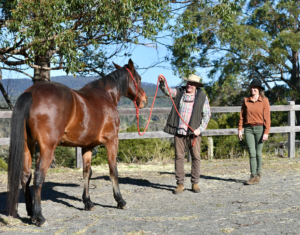
To truly connect with a horse, one must prioritise communication, flexibility in methods, and empathy.
This involves actively listening to the body language of the horse, this is their way of showing you if you they understand, or they don’t, and responding to their messages with patience and consideration.
Building trust takes time, feel and consistency; it’s about demonstrating reliability and predictability in your actions so that the horse feels safe and secure in your presence.
‘Connect before you correct’
Author unknown

Once a strong bond of trust is established, addressing behavioural issues becomes much more effective. The horse is more likely to respond positively to guidance and corrections when they feel connected to you.
Training is not about enforcing obedience, but rather fostering a partnership built on reciprocal respect and understanding.
‘It takes as long as it takes.
Horses don’t follow a schedule.’
Kate Young
In essence, the key to successful horse training lies not only in technical skills but also in emotional intelligence and the ability to forge a meaningful connection with these amazing animals.
